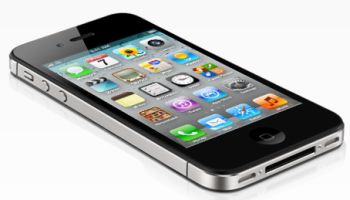Motorola Wins German iPhone Ban Bid

A court rules that the iPad and iPhone should be banned in Germany, but Apple is set to appeal
A German court has ruled that Apple’s iPhone, iPad and other mobile products violate a key wireless patent owned by Motorola Mobility and that the sales of its products should be halted in Germany.
Apple has said it is appealing the ruling and is requesting a stay of the court’s injunction in the meantime.
Legal battle
 The ruling, handed down by the Mannheim Regional Court, is the latest move in a long legal battle between Motorola Mobility and Apple, which is likely to intensify following the expected acquisition of Motorola Mobility by Google.
The ruling, handed down by the Mannheim Regional Court, is the latest move in a long legal battle between Motorola Mobility and Apple, which is likely to intensify following the expected acquisition of Motorola Mobility by Google.
Apple is also engaged in mobile patent battles with HTC, Samsung and others in courts around the world.
The cases all relate to the market for smartphones and other connected devices such as tablets, a market that has become highly lucrative in the past few years and has turned Apple into one of the most valuable companies in the world.
Motorola welcomed the ruling and said it will continue to take “all necessary steps” to protect its intellectual property.
“We have been negotiating with Apple and offering them reasonable licensing terms and conditions since 2007, and will continue our efforts to resolve our global patent dispute as soon as practicable,” said Scott Offer, senior vice-president and general counsel of Motorola Mobility, in a statement.
Apple said it would appeal the ruling immediately and said its products would remain available in Germany.
Key patent
The court ruled that Apple’s iPhone and iPad products violate a European Patent related to a “method for performing a countdown function during a mobile-originated transfer for a packet radio system.” The patent is one of the central pieces of intellectual property in the GPRS standard and is the European equivalent of one that Motorola and Apple are fighting over in the US.
The patent is available for licensing under fair, reasonable and non-discriminatory (FRAND) terms, and Apple offered to license the patent on those terms going forward.
However, in its offer, Apple retained the right to contest the validity of the patent in order to avoid paying damages on its past use of the patent, going back to 2007. Apple has already filed an action contesting the validity of the patent in Munich’s Federal Patent Court.
Motorola’s lawyers argued that Apple’s reservations regarding the past use of the patent were unacceptable, and the court agreed with this argument.
Motorola argues that it has the right to make Apple pay above-FRAND rates for its unauthorised use of its patent from 2007 to the present, according to patent expert Florian Mueller.
“The logic presented by Motorola’s counsel convinced the court: someone using a patented invention should have to pay a price for being found to have infringed,” Mueller said in a blog post.
The case is likely to continue for several years in a higher regional court, according to Mueller. He said the patent in question would be difficult for Apple to work around, since it is essential to the GPRS standard.
Apple’s battle with Samsung is the most extensive in the mobile area, including more than 20 lawsuits in 10 countries.
Apple recently managed to have sales of Samsung’s Galaxy Tab tablet banned in Australia, but the ban was lifted last week. Apple is pursuing a similar injunction against Samsung in the US.